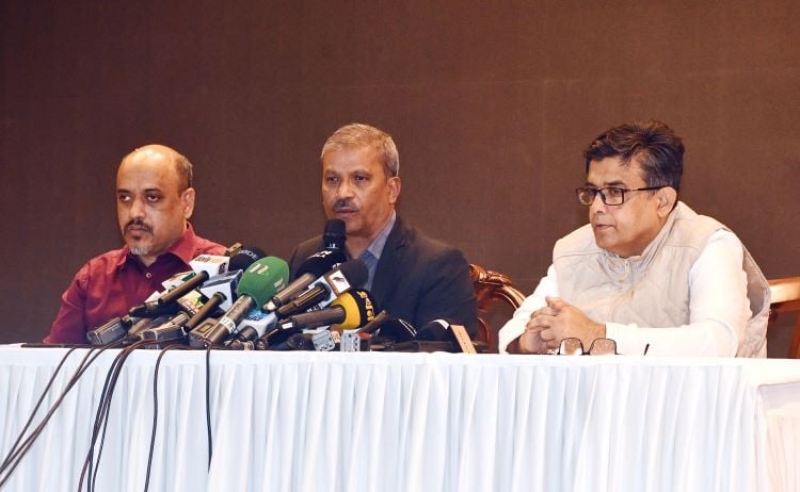- Tarique Rahman returns home amid rapturous reception |
- Home After 17 Years: Tarique Returns to Gulshan Residence |
- Tarique Calls for United Effort to Build a Safe Bangladesh |
- Tarique leaves for 300 feet area from airport |
- BNP top leaders welcome Tarique Rahman on homecoming |
Political Consensus Essential for Reform Implementation: Adviser

Law Adviser Dr Asif Nazrul spoke at a press briefing at Foreign Service Academy in Dhaka this evening. Photo: BSS
Law Adviser Dr. Asif Nazrul emphasized the critical need for political consensus to implement the immediate reforms proposed by six reform commissions ahead of the next general elections.
Speaking at a press briefing at the Foreign Service Academy, Dr. Nazrul explained that the full reports from the six commissions have been uploaded to the Cabinet Division's website, where they outline a range of immediate reform proposals. He noted that while some of the recommendations could be enacted via executive orders, political consensus remains crucial for others to take effect.
"The reform proposals are ready for implementation, with some of them feasible starting tomorrow. However, political consensus is key to ensuring the comprehensive adoption of these reforms before the upcoming elections," Dr. Nazrul stated.
He highlighted several key proposals, beginning with those from the Public Administration Reform Commission, which recommends the formation of a permanent Public Administration Reform Commission. Other suggestions include creating a new code of conduct for government officials, introducing public hearings, establishing citizen committees at the district and upazila levels, and reducing the number of ministries and divisions. Additionally, the commission proposed the creation of two new administrative divisions and the digitalization of sub-registrar offices.
On the Judiciary Reform Commission’s recommendations, Dr. Nazrul pointed out that it called for a clear policy for judicial officer transfers, a new code of conduct for judicial staff, the establishment of commercial courts, and the introduction of a permanent government attorney service. The commission also recommended launching an e-judiciary project, setting up information desks in courts, preventing political interference within court premises, and hiring retired judges to alleviate the growing case backlog.
Regarding the Election Reform Commission, Dr. Nazrul mentioned the need to update the voter list and address constituency demarcation issues, which are crucial steps for fair and free elections.
He reiterated that while some of these reforms have already been initiated by the interim government, the successful implementation of others will depend on achieving broader political agreement.
The briefing was also attended by Chief Adviser's Press Secretary Shafiqul Alam and Deputy Press Secretary Abul Kalam Azad Majumder.

